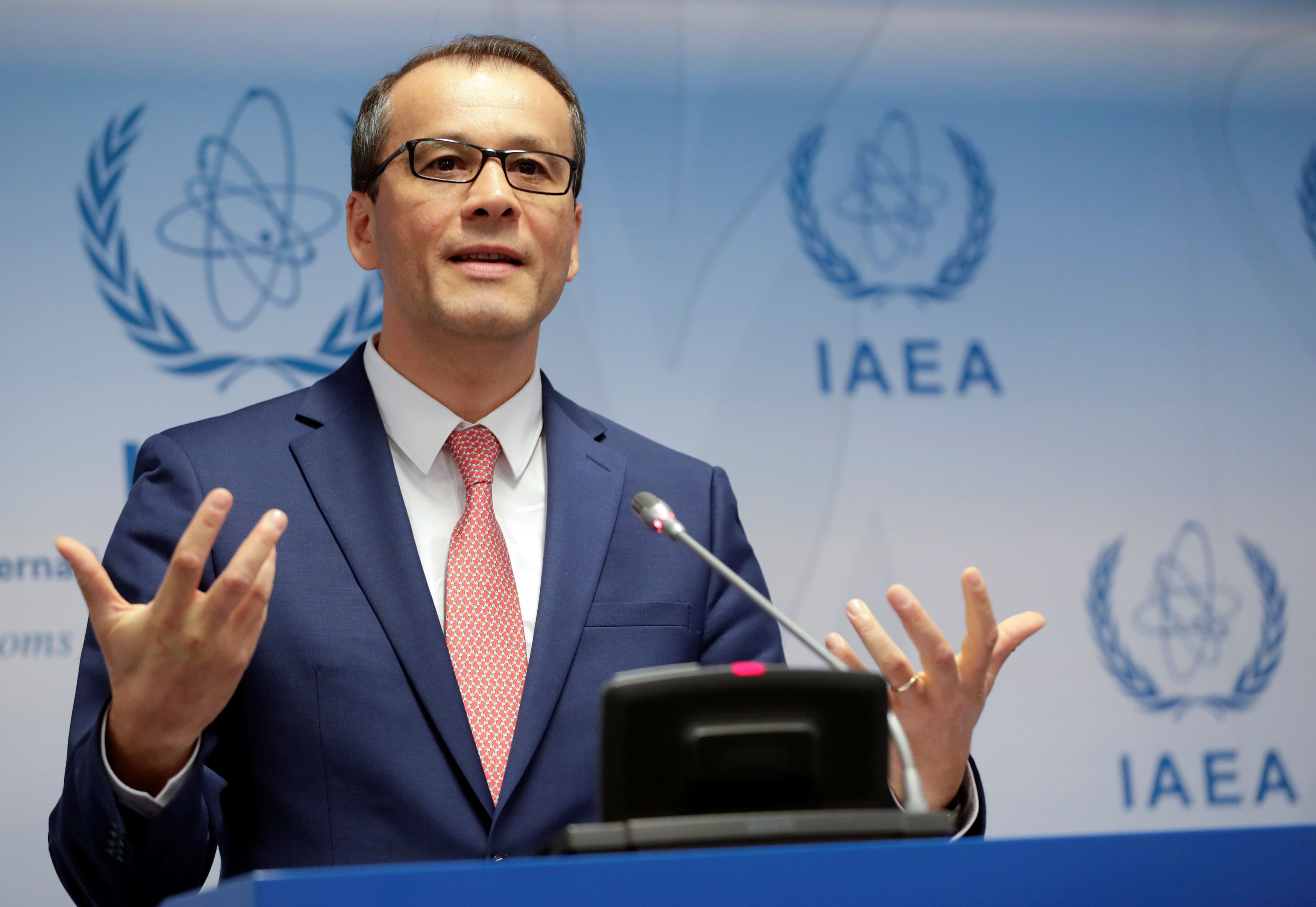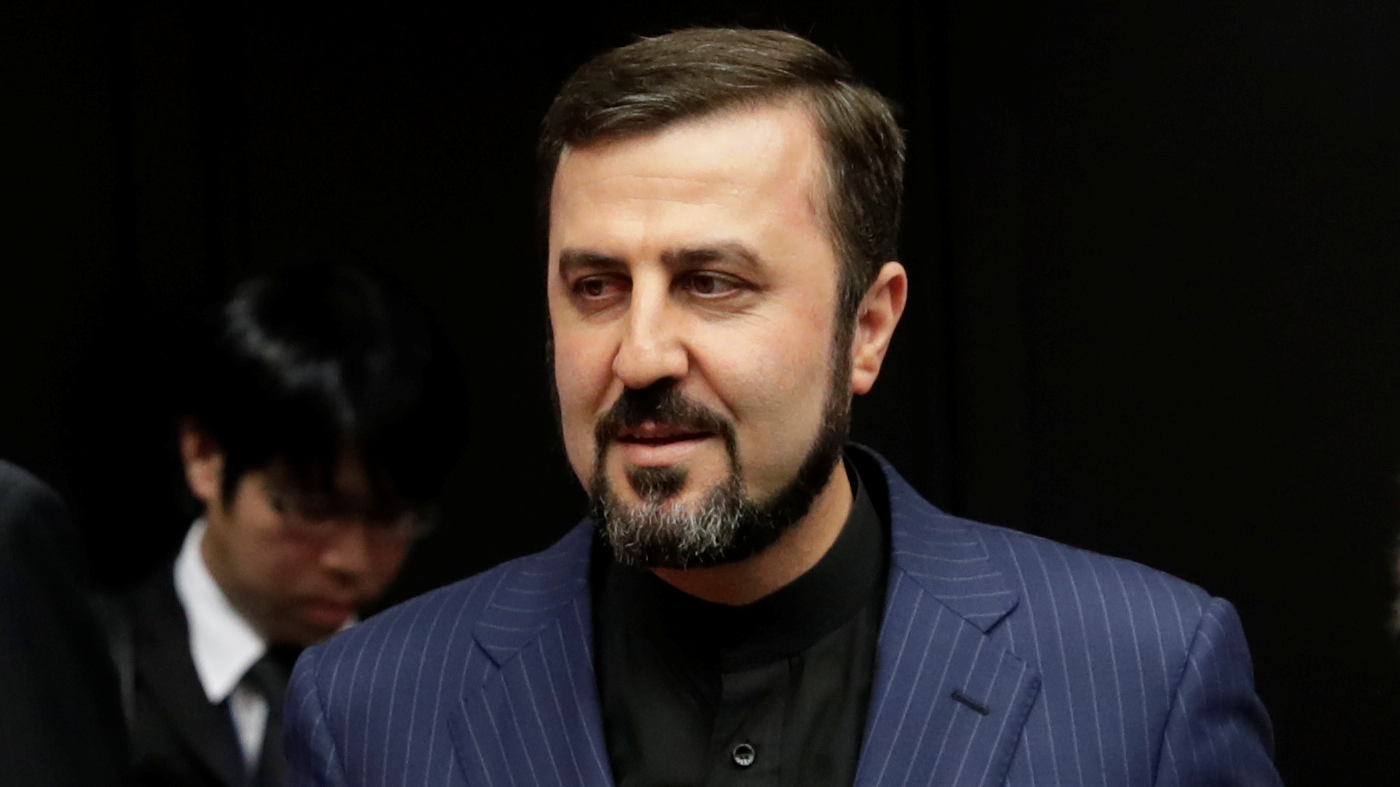
Israeli Prime Minister Benjamin Netanyahu said on Monday that Iran had been developing nuclear weapons at a secret site near the city of Abadeh, but that Tehran destroyed the facility after learning it had been exposed.
It was the first time Netanyahu had identified the site, which, he said, was discovered in a trove of Iranian documents Israel previously obtained and disclosed last year.
"In this site, Iran conducted experiments to develop nuclear weapons," Netanyahu said in broadcast remarks, showing an aerial picture of several small buildings, including their coordinates, that he said were taken at the Abadeh facility late in June 2019.
"When Iran realized that we uncovered the site, here's what they did," he said, showing a picture from a month later in which the buildings no longer appeared. "They destroyed the site. They just wiped it out."
"I call on the international community to wake up, to realize that Iran is systematically lying," Netanyahu said. "The only way to stop Iran's march to the bomb, and its aggression in the region, is pressure, pressure and more pressure."

International Atomic Energy Agency (IAEA) acting head Cornel Feruta addresses the media during a board of governors meeting at the IAEA headquarters in Vienna, Austria, September 9, 2019. /Reuters Photo
The UN nuclear watchdog told Iran on Monday there is no time to waste in answering its questions, which diplomats say include how traces of uranium were found at a site that was not declared to the agency.
Diplomats say Iran has yet to explain to the International Atomic Energy Agency how the uranium particles ended up at what Tehran has said was a carpet-cleaning facility.
Details of IAEA inspections are confidential and the agency generally does not comment on them. But the IAEA’s acting chief made clear that in meetings in Tehran on Sunday he pushed Iran to improve cooperation with the UN non-proliferation watchdog.
At the same time, the Vienna-based IAEA has not yet sounded the alarm because such questions are part of a painstaking process that can often take many months.

Iran's ambassador to the International Atomic Energy Agency (IAEA) Kazem Gharib Abadi arrives for a board of governors meeting at the IAEA headquarters in Vienna, Austria, September 9, 2019. /Reuters Photo
"Certain nuclear-weapon states are responsible for the current situation of nuclear weapon test," Majid Takht Ravanchi, permanent representative of Iran to the United Nations made the remarks at the United Nations General Assembly meeting on International Day against Nuclear Tests.
"While we made certain progress in the past, unfortunately, currently there are two alarming races: new nuclear arms race and nuclear arms modernization race. At a time when certain nuclear-weapon States have plans to develop new easy-to-use nuclear weapons, ending nuclear weapon test explosions is of outmost importance," Ravanchi said.
"However, while nuclear-weapon states have the primary responsibility to that end, regrettably, some of them are responsible for the current situation," he added.
"We should also recall the destructive environmental effects of such tests, most of which have been carried out outside the territory of countries conducting them," he said.

Copyright © 2018 CGTN. Beijing ICP prepared NO.16065310-3
Copyright © 2018 CGTN. Beijing ICP prepared NO.16065310-3